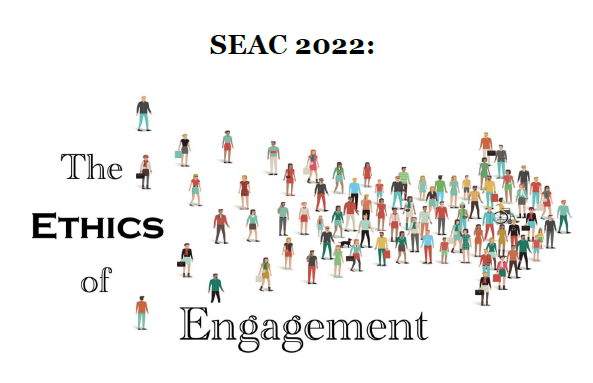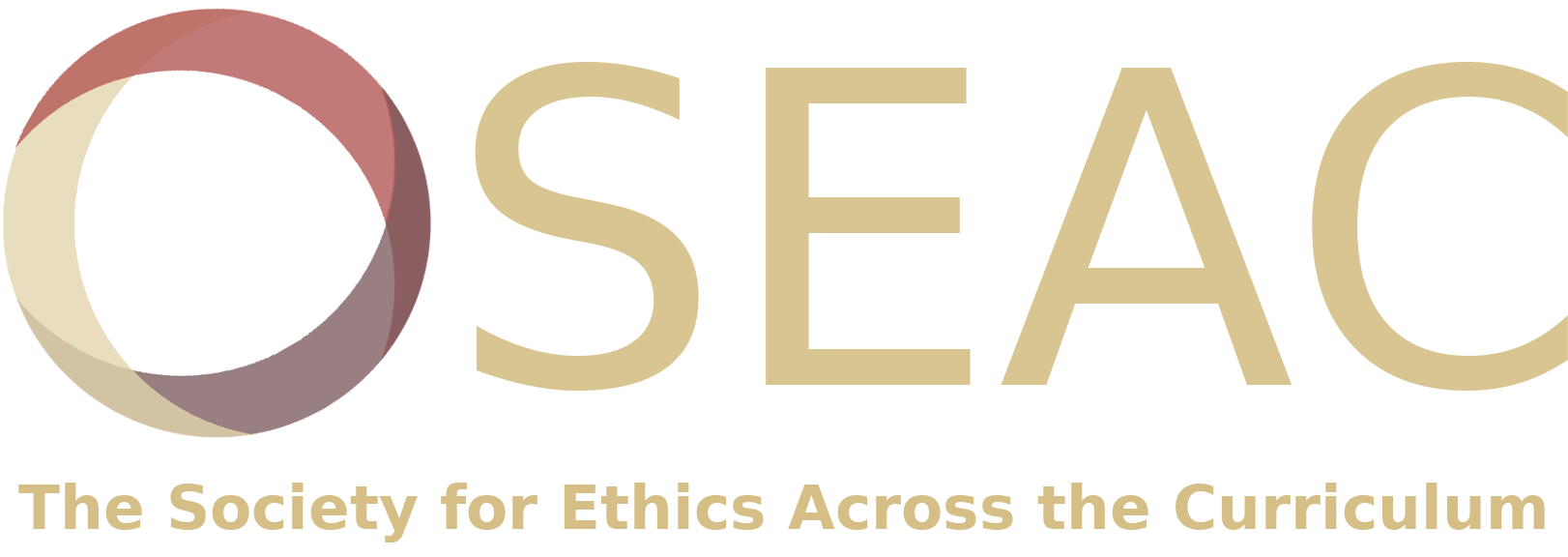
Concurrent Session 1B
Location
Ford Ballroom B, The Inn at Ole Miss
Start Date
6-10-2022 11:00 AM
End Date
6-10-2022 12:15 PM
Description
- Addressing Decision Fatigue: Adopting an Ethical Reasoning Stra Developing Pattern Recognition for Moral Situations / Christian Early, James Madison University
Decision fatigue has emerged as a phenomenon impacting the lived experience of post-pandemic life. The accumulation of choices that we are having to make contributes to a felt sense of overwhelm, and we can end up making bad decisions. The pandemic amplifies the situation as even small decisions, such as going shopping, seem risky and uncertain. Psychologists who describe the phenomenon provide general but bland guidance such as "life is hard, be kind to yourself and others." Ethical theory also seems of little practical use as there are too many decisions in a single day for anyone to think through. This paper suggests that we turn instead to the (Aristotelian) tradition of practical reasoning and look to decision-making strategies such as Eight Key Questions (8KQ) and develop habits of pattern recognition in moral situations to manage the stress of daily life in a risky and uncertain world. - The Ethics of Doing Ethics / Christopher Meyers (Emeritus), California State University, Bakersfield and Dan Wueste, Clemson University
A telling irony has long existed in the work of practical ethics. While we have been only too happy to weigh in on best practices within an array of professions and businesses, that same attention is rarely turned inward: How should one manage ethical concerns present in directing an ethics center, providing consulting, teaching ethics courses, conducting ethics seminars for professionals, and engaging in research? It is not as if such concerns are absent from ethics work; for example, center directors must navigate fundraising quandaries and maintain an ethical workplace; consultants must tread the line between being helpful counselors and being co-opted by their organizations; teachers must balance presenting a neutral stance on controversial topics against coming across as at least passively endorsing unjust structures and practices; and researchers must eschew “compliance mentality” and yet maintain their integrity and that of the research enterprise in the face of institutional expectations and economic opportunities, to say nothing of their own ambitions. We will provide a brief overview of the “ethics of doing ethics” and then give attention to a few of the more telling concerns: conflict of interest, appropriate limits of activism, and the “terms of ethical engagement” when teaching or helping professionals promote and sustain an ethical environment in their practice. Because, we argue, such issues are endemic to the type of work we do, the realistic goal is producing practical strategies for how best to avoid the worst of them, while also managing their most problematic impacts.
Session Chair: Steven Skultety, University of Mississippi
Relational Format
conference proceeding
Recommended Citation
Early, Christian; Meyers, Christopher; Wueste, Dan; and Skultety, Steven, "Concurrent Session 1B" (2022). Society for Ethics Across the Curriculum Conference. 4.
https://egrove.olemiss.edu/seac/2022/schedule/4
COinS
Oct 6th, 11:00 AM
Oct 6th, 12:15 PM
Concurrent Session 1B
Ford Ballroom B, The Inn at Ole Miss
- Addressing Decision Fatigue: Adopting an Ethical Reasoning Stra Developing Pattern Recognition for Moral Situations / Christian Early, James Madison University
Decision fatigue has emerged as a phenomenon impacting the lived experience of post-pandemic life. The accumulation of choices that we are having to make contributes to a felt sense of overwhelm, and we can end up making bad decisions. The pandemic amplifies the situation as even small decisions, such as going shopping, seem risky and uncertain. Psychologists who describe the phenomenon provide general but bland guidance such as "life is hard, be kind to yourself and others." Ethical theory also seems of little practical use as there are too many decisions in a single day for anyone to think through. This paper suggests that we turn instead to the (Aristotelian) tradition of practical reasoning and look to decision-making strategies such as Eight Key Questions (8KQ) and develop habits of pattern recognition in moral situations to manage the stress of daily life in a risky and uncertain world. - The Ethics of Doing Ethics / Christopher Meyers (Emeritus), California State University, Bakersfield and Dan Wueste, Clemson University
A telling irony has long existed in the work of practical ethics. While we have been only too happy to weigh in on best practices within an array of professions and businesses, that same attention is rarely turned inward: How should one manage ethical concerns present in directing an ethics center, providing consulting, teaching ethics courses, conducting ethics seminars for professionals, and engaging in research? It is not as if such concerns are absent from ethics work; for example, center directors must navigate fundraising quandaries and maintain an ethical workplace; consultants must tread the line between being helpful counselors and being co-opted by their organizations; teachers must balance presenting a neutral stance on controversial topics against coming across as at least passively endorsing unjust structures and practices; and researchers must eschew “compliance mentality” and yet maintain their integrity and that of the research enterprise in the face of institutional expectations and economic opportunities, to say nothing of their own ambitions. We will provide a brief overview of the “ethics of doing ethics” and then give attention to a few of the more telling concerns: conflict of interest, appropriate limits of activism, and the “terms of ethical engagement” when teaching or helping professionals promote and sustain an ethical environment in their practice. Because, we argue, such issues are endemic to the type of work we do, the realistic goal is producing practical strategies for how best to avoid the worst of them, while also managing their most problematic impacts.
Session Chair: Steven Skultety, University of Mississippi


